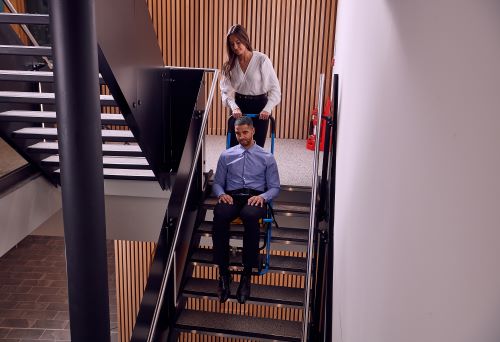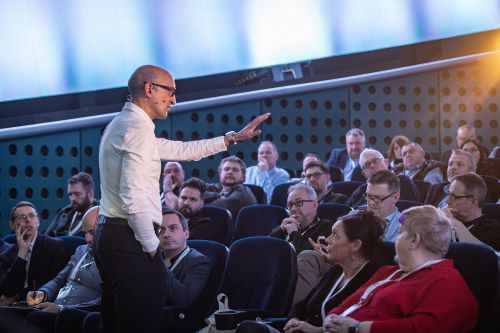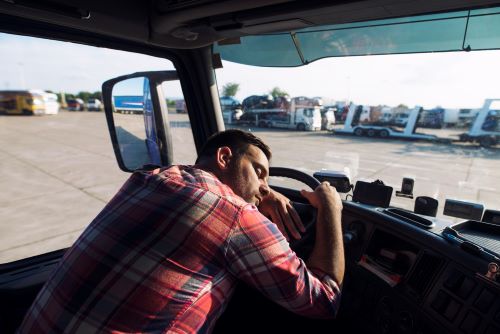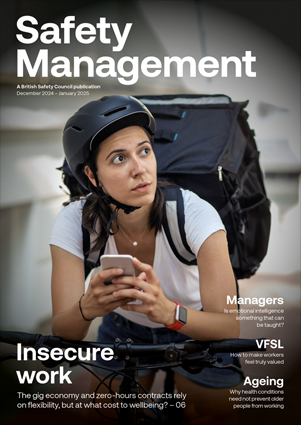Ruth Denyer has spent almost three decades working as a health and safety professional in the entertainment industry, starting out in theatre before spending 17 years at ITV and then joining global streaming service Netflix. Safety Management sat down with Ruth to discuss a range of issues, from the realities of keeping people safe on set without dampening creativity, to her role as co-president of the International Institute of Risk and Safety Management (IIRSM) – which, alongside Ruth, will celebrate its 50th birthday next year.
Features
Stars of the show: what goes on behind the scenes to keep people safe on TV and film sets
It might sound like a challenge to prevent people from being injured or made unwell while filming television shows such as Celebrity Shark Bait, which involved lowering stars of stage and screen into shark-infested waters in cages for entertainment, or I’m a Celebrity, Get Me Out of Here, where famous people eat unspeakable parts of animals’ anatomies and have creepy crawlies poured over them. But for Ruth Denyer, it was all in a day’s work during her time as group risk director at UK broadcaster ITV.
“I think you have to want to be challenged if you go into this industry because there are many different projects with many different visions, and what you’re trying to do is enable the creation of that vision but also manage the risks of people while you’re doing that,” says Denyer. “It might be something that’s never been done before, and it’s really thinking about managing the risks to people in a risk-management framework rather than just a strict compliance framework.”
 Photograph: iStock/choicegraphx
Photograph: iStock/choicegraphx
Approaching things in a “non-linear” way is helpful, she adds, because “you’re not doing the same thing all the time – you’re in different places and you’ve got different people driving it, so you need to be thinking about how you’re managing the risks and how you’re articulating what those risks actually are”.
The earlier entertainment safety teams get involved in projects the better, in Denyer’s view: “Whatever creative business you’re in, I think every safety person would say, ‘the earlier I can get involved – at the point in time when you’ve even got an idea – we can start talking about what risks there might be, and how we might manage that.’
It’s much easier to put in place that management plan or strategy, or to pivot, than it is if I’m there on the day someone’s filming or the event’s taking place and I’m walking the floor. The impact I can have is so much less at that point in time.”
Denyer admits to having a certain amount of trepidation about some of the TV show ideas she was confronted with during her 17 years at ITV. However, logical thinking and talking things through thoroughly from an early stage helped move creative ideas forward safely.
“Yes, there are moments when you do go, ‘wow, how are we going to do that?’ But you have to engage with the ambition because if you don’t, they won’t engage with you,” she says. “As a safety person, you could go, ‘well, that’s just crazy, isn’t it?’ But, actually, going through it and saying, ‘how do we do this in the safest way possible?’ is the question we always talk about. How are we setting this up? What are we trying to do with it? What are the risks with it? Is it under water? Is it from a tree?
“A lot of it is making sure that you’ve thought about those risks, and you’ve got the right people giving you the right expertise. So, if you’re rigging something from a tree, I’m not the person to ask how to do that – I’m the person to go, ‘hang on, there’s a risk here. Have we got the right people involved?’”
 Ruth Denyer, senior director of production health and safety at Netflix and co-president of the International Institute of Safety and Risk Management (IIRSM): "I think you have to want to be challenged if you go into this industry because there are many different projects with many different visions."
Ruth Denyer, senior director of production health and safety at Netflix and co-president of the International Institute of Safety and Risk Management (IIRSM): "I think you have to want to be challenged if you go into this industry because there are many different projects with many different visions."
Media attention
The high-profile nature of the entertainment industry is another point to consider when thinking about pursuing a health and safety career in the sector. When things do go wrong, they tend to make headlines. Take, for example, the fatal shooting of cinematographer Halyna Hutchins on the set of the movie Rust in October 2021. An involuntary manslaughter case against Rust actor Alec Baldwin, who was holding the gun when it went off, was dismissed in mid-July. However, Hannah Gutierrez-Reed, the armourer on the movie set who loaded the gun with live ammunition was found guilty in March of involuntary manslaughter and sentenced to 18 months in prison.
More recent, albeit less extreme, examples include British actor Sir Ian McKellen falling off stage during a fight scene while performing a play in a London theatre in June, and the media storm around BBC1’s Strictly Come Dancing show, where contestants have complained about alleged abusive behaviour during rehearsals. BBC director general Tim Davie issued the following statement in response to the allegations: “There will be a degree of competitiveness and will to do well, but there are limits and the line should never be crossed. We never tolerate unacceptable behaviour of any kind.”
Denyer acknowledges the extra pressure that media attention can bring but emphasises the amount of work that goes on behind the scenes to keep people safe, which normally goes unnoticed.
“I think what’s really interesting about the high-profile nature of it is that, yes, all eyes are on you when things are being broadcast and shown and there’s high-level talent, but there’s a lot of work that goes on early on behind the scenes that isn’t as recognised, and so there’s this balance between really focusing on the stuff that the press would focus on and really focusing on the whole workforce and the whole chain,” she says. “So, if you can imagine you’re setting up an event. If something happens when there’s this band on stage, it’s going to be a much bigger press story than if it happened in the build, but it’s still people and it’s still the safety of people that is really important.
“So, I think there’s that balance and you have that tension in the work that I’m not sure you have when you’re not doing those high-profile moments that the press looks at. And it’s not just the press, it’s social media and everything.”
Moving to Netflix
Denyer made the move from ITV to Netflix in November 2020 and is currently a senior director of production health and safety. She was attracted to Netflix by its organisational culture, which she had read about in a company memo back in 2012.
 Ruth Denyer moved from ITV to Netflix in November 2020. Photograph: iStock/Marvin Samuel Tolentino Pineda
Ruth Denyer moved from ITV to Netflix in November 2020. Photograph: iStock/Marvin Samuel Tolentino Pineda
In Netflix’s most recent Culture Memo, published in June, it emphasises the freedom it gives its employees to make decisions, noting: “In entertainment and technology, our biggest threat is a lack of creativity, adaptability and innovation. It’s why trying to minimise rules and processes (rather than errors) – while giving people the freedom to use their own judgment and learn from their mistakes – is a far superior recipe for long-term success.”
“I joined because of the culture of the organisation…it really sang to what I thought was important,” says Denyer, adding that it is “amazing to be a part of and to see it grow and evolve and change as the company becomes bigger and more global”.
Alongside her role at Netflix, Denyer is co-president of the International Institute of Risk and Safety Management (IIRSM). One of her priorities at the charity before she hands the reins to fellow co-president Rosie Russell, who will become sole president next year, is to continue to build a sense of community among people who work in the health and safety sector.
“The IIRSM is 50 next year – 15 days after I am – and I really want to support the community of health and safety people,” she says. “I want people to be able to get the support of their peers in this community and to feel comfortable leaning into it.”
Transferable skills
After spending almost 30 years working in health and safety across a variety of industries, with a strong focus on entertainment, what’s next for Ruth Denyer? It sounds as though she is keeping her options open.
“I don’t know what’s next,” she says. “I do know that I don’t do jobs I’m going to retire from. There will be another job, there’ll be another role. But it’s interesting to think about what that is because I do think your skills become increasingly interchangeable when you’re at a very senior level, and I think sometimes we get a bit too stuck on a sector when, actually, there are interesting challenges in every sector and skills are transferable.”
FEATURES

Emergency evacuation for people with mobility issues: why we must do better
By Gerard Wallace, Evac+Chair International on 01 August 2023
With research revealing poor understanding among many businesses of their duty to have arrangements in place to safely evacuate mobility-impaired people, it’s time for the government to educate building owners about their obligations and mandate the provision of evacuation equipment, to ensure a safe evacuation for everyone.

Establishing a company culture of safety
By Driving for Better Business on 01 November 2024
Collision prevention takes growth mindsets, psychological safety and a ‘just’ culture, delegates at the recent National Highways ‘Driving Change’ conference heard.

Driver fatigue: always minimise the risk
By Driving for Better Business on 01 November 2024
Research shows that driver fatigue may be a contributory factor in up to 20 per cent of road incidents, and up to one-quarter of fatal and serious incidents.



